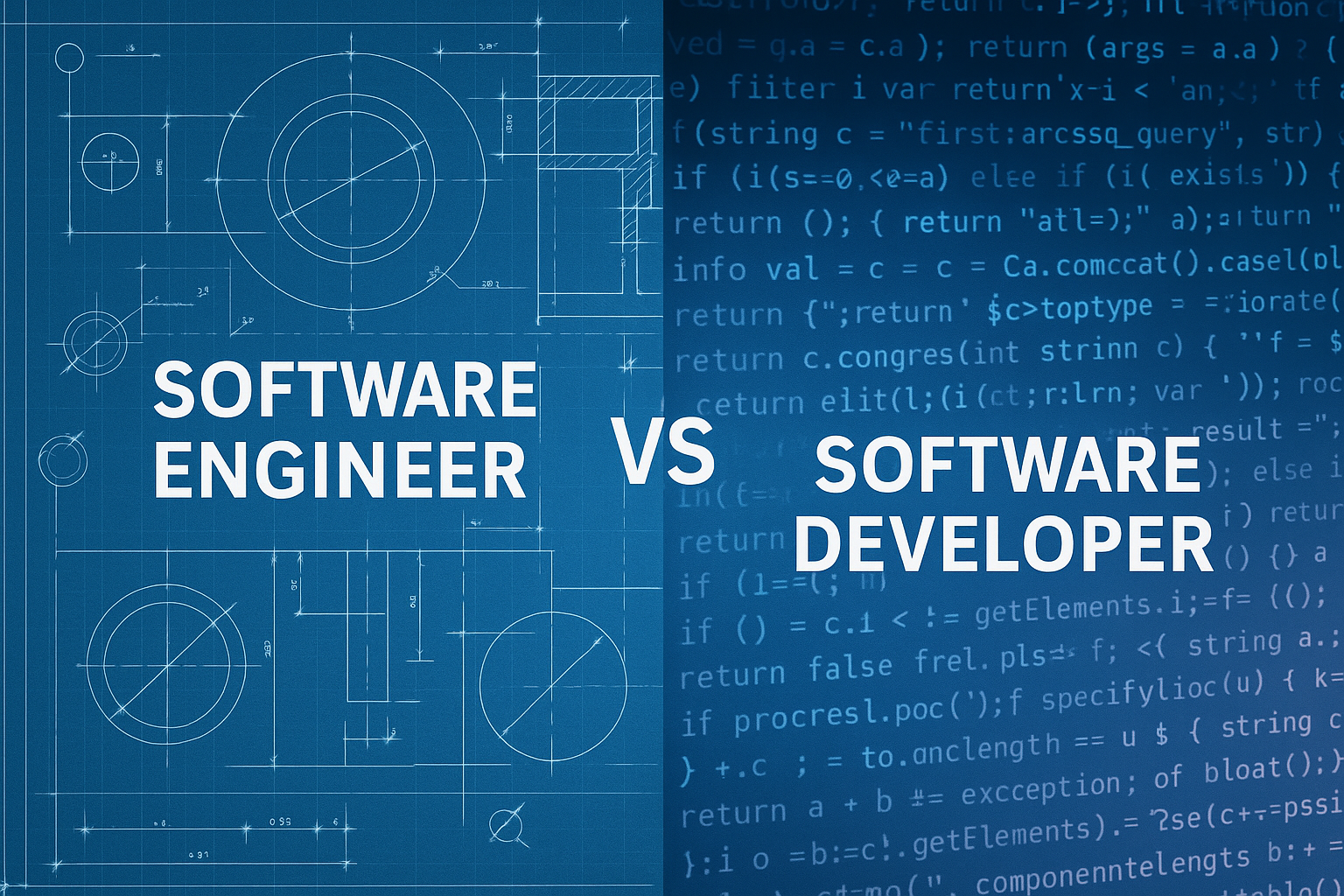Why Words Matter in Job Titles
In the tech industry, job titles carry weight. They shape expectations, influence hiring decisions, and guide how teams work together. Yet two of the most common titles-Software Engineer and Software Developer-are often used as if they mean the same thing. On the surface, this seems harmless. In reality, the distinction is important, both for organizations and for individuals building their careers.
What a Developer Brings to the Table
A Software Developer is focused on building. Their role is about creating functional features, solving immediate problems, and translating requirements into working code. Developers excel at iteration: writing, testing, and refining until the software does what it needs to do.
Their strength lies in execution. Give them a clear problem, and they will deliver a solution efficiently. This makes developers essential in fast-moving environments where speed and adaptability matter more than long-term planning.
The Broader Lens of an Engineer
A Software Engineer, by contrast, approaches problems at the system level. They do more than write code-they design frameworks that ensure the code will scale, remain secure, and be maintainable years down the road.
Engineers think in terms of trade-offs. Should the system prioritize speed or reliability? How will today’s choices affect tomorrow’s performance? They look beyond the immediate task and plan for growth, integration, and sustainability.
Why the Difference Is Not Just Semantics
Confusing these roles can create real problems. Expecting a developer to act like an engineer can lead to fragile systems that crack under growth. Expecting an engineer to function purely as a developer risks slowing down delivery with unnecessary architectural overhead.
Clear distinctions help teams assign responsibilities realistically. They also give professionals a roadmap for their own development. Some thrive on the craft of coding and quick iteration. Others are drawn to system design and long-term resilience. Both paths are critical, but they should not be treated as interchangeable.
Building Teams That Work
Successful organizations recognize the value of both roles. They hire developers who bring focus and agility to building features. They hire engineers who ensure the foundations are solid. Together, they create software that is both functional today and reliable tomorrow.
Industry data also shows that while both roles fall under the broader umbrella of “software,” the demand is diverse. Some companies need developers who can deliver features at speed, while others need engineers to build systems that can last for decades.
Final Thought
The conversation about job titles is not about prestige-it is about clarity. Developers and engineers complement each other, but they are not the same. A developer makes software work. An engineer makes software last. Knowing the difference leads to stronger teams, better projects, and healthier careers.
References
- IEEE. (1990). IEEE Standard Glossary of Software Engineering Terminology (IEEE Std 610.12-1990). Institute of Electrical and Electronics Engineers.
- ACM/IEEE-CS Joint Task Force on Computing Curricula. (2013). Computer Science Curricula 2013: Curriculum Guidelines for Undergraduate Degree Programs in Computer Science. Association for Computing Machinery.
- U.S. Bureau of Labor Statistics. (2024). Software Developers. Occupational Outlook Handbook. Retrieved from https://www.bls.gov/ooh/computer-and-information-technology/software-developers.htm




Leave A Comment